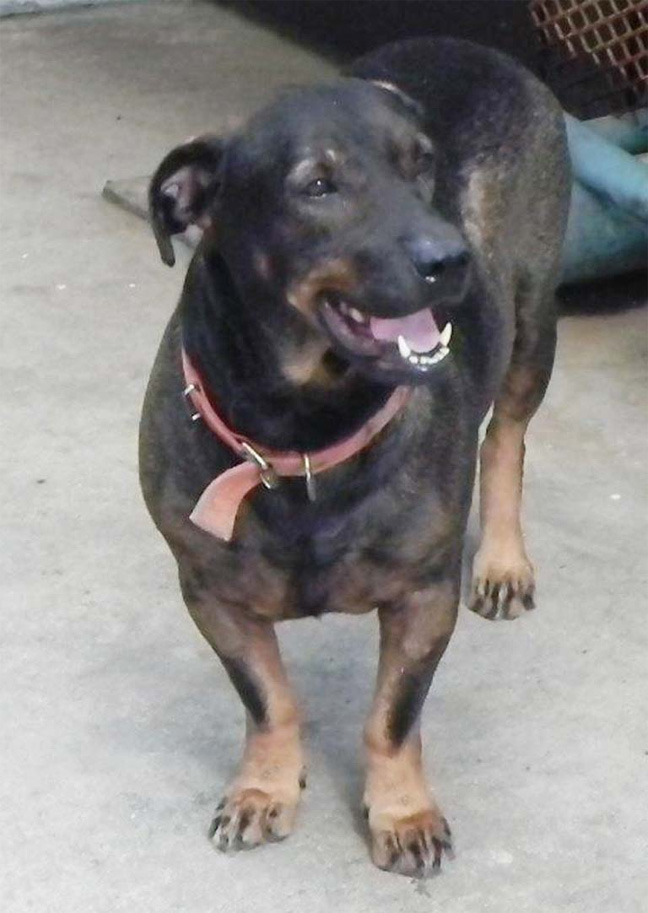We have been discussing ailments pertaining to the respiratory system of our pets. Within this context, we must also deal with any sickness affecting organs that are in some way (even if only tangentially) associated with the respiratory apparatuses. Within this category falls the larynx.
The larynx is a short, oblong structure located above the windpipe in the throat area. It is made of cartilage and contains the vocal cords. Because dogs bark a lot (their way of ‘speaking’/communicating), their vocal cords (therefore the larynx itself) are relatively much more developed than in other domestic pets, for example, cats.

When dogs exhibit a coughing fit, or hoarseness or difficult breathing, it usually is because the larynx is in some way injured, for example, by infection or by some physically traumatic incident (eg, a hit).
If the larynx is experiencing an inflammatory process, we speak of laryngitis, which results in hoarseness or in a worst case scenario, a loss of sound as the animal attempts to bark. Excessive barking strains the vocal cords and can also result in hoarseness or a soft barking noise. Once the animal is withdrawn from the state of excitement which causes the barking, the situation usually rectifies itself.
Further, as is very often the case, laryngitis can be caused by any one of the upper respiratory tract diseases. Of course, the irritation of the larynx may also be caused by the inhalation of dust, smoke, or a caustic gas. Even lodged foreign bodies (eg, grass seeds) can precipitate a laryngitis.
Laryngitis also may accompany other diseases, eg, canine distemper. I should mention that other associated ailments, eg, tonsillitis could spread and precipitate a laryngitis.
Finally, let it be clear that any condition causing a decrease in size of the voice box (larynx) could later result in a long lasting laryngitis.
Symptoms of
laryngitis

Treatment
Identification and treatment of the primary disease is essential. Palliative procedures such as inhalation of humidified air; confinement to a warm, clean environment; feeding soft or liquid foods; and avoiding dust will speed recovery and give comfort to the animal. The cough may be suppressed with anti-cough preparations; bacterial infections can be controlled with antibiotics or sulfonamides. Control of pain with judicious use of an analgesic, especially in cats, will allow the animal to eat and thus speed recovery. Tracheotomy may be necessary, if obstruction of the larynx is severe enough to cause an oxygen-intake deficiency (the tongue begins to turn blue).
Please implement disease preventative measures (vaccinations, routine dewormings, monthly anti-heartworm medication, etc) and adopt-a-pet from the GSPCA’s Animal Clinic and Shelter at Robb Street and Orange Walk, if you have the wherewithal to care well for the animals. Do not stray your unwanted pets, take them to the GSPCA’s Clinic and Shelter instead. If you do not wish your pet to have puppies or kittens, you may exploit the GSPCA’s free spay and neutering programme. If you see anyone being cruel to an animal, or if you need any technical information, please get in touch with the Clinic and Shelter by calling 226-4237.






